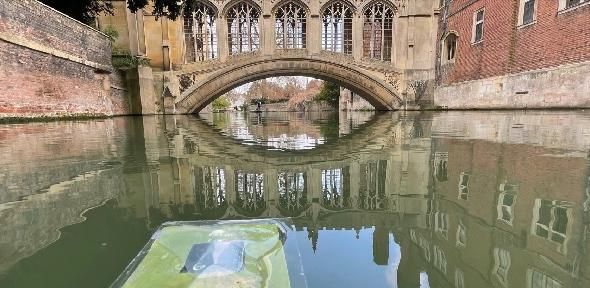
Researchers have developed floating ‘artificial leaves’ that generate clean fuels from sunlight and water, and could eventually operate on a large scale at sea.
The researchers, from the University of Cambridge, designed ultra-thin, flexible devices, which take their inspiration from photosynthesis – the process by which plants convert sunlight into food. Since the low-cost, autonomous devices are light enough to float, they could be used to generate a sustainable alternative to petrol without taking up space on land.
Outdoor tests of the lightweight leaves on the River Cam – near iconic Cambridge sites including the Bridge of Sighs, the Wren Library and King’s College Chapel – showed that they can convert sunlight into fuels as efficiently as plant leaves.
This is the first time that clean fuel has been generated on water, and if scaled up, the artificial leaves could be used on polluted waterways, in ports or even at sea, and could help reduce the global shipping industry’s reliance on fossil fuels.
"Artificial leaves could substantially lower the cost of sustainable fuel production, but since they’re both heavy and fragile, they’re difficult to produce at scale and transport," Dr Virgil Andrei, Yusuf Hamied Department of Chemistry, co-lead author
For several years, Professor Erwin Reisner’s research group in Cambridge has been working to address this problem by developing sustainable solutions to petrol which are based on the principles of photosynthesis. In 2019, they developed an artificial leaf, which makes syngas – a key intermediate in the production of many chemicals and pharmaceuticals – from sunlight, carbon dioxide and water.
Tests of the new artificial leaves showed that they can split water into hydrogen and oxygen, or reduce CO2 to syngas. While additional improvements will need to be made before they are ready for commercial applications, the researchers say this development opens whole new avenues in their work.
Image credit: Virgil Andrei

